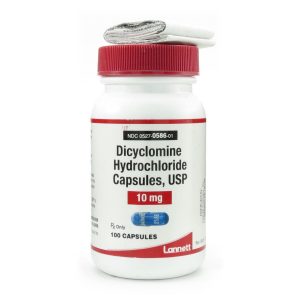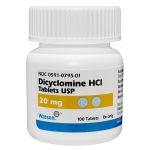Can I Take Dicyclomine 10 Mg For Weight Loss?

The terms “overweight” and “obesity” refer to bodyweight that is greater than what is considered normal or healthy for a certain height. Being overweight is generally due to extra body fat. However, being overweight may also be due to extra muscle, bone, or water. People who are obesed usually have too much body fat.
The U.S. adult obesity rate stands at 42.4 percent, the first time the national rate has passed the 40 percent mark, and further evidence of the country’s obesity crisis. The national adult obesity rate has increased by 26 percent since 2008. Being obese can also increase your risk of developing many potentially serious health conditions, including type 2 diabetes, high blood pressure, high cholesterol, and atherosclerosis (where fatty deposits narrow your arteries), which can lead to coronary heart disease and stroke.
Weight-loss medications are an important component of a complete treatment plan for adults with obesity (BMI > 30) or overweight (BMI > 27) with increased adiposity complications. The benefits of weight loss medications include: appetite control, improvement of eating behavior, and slow progression of weight gain and regain.
What is Dicyclomine?
Dicyclomine is a medication used to treat the symptoms of irritable bowel syndrome. Dicyclomine is in a class of medications called anticholinergics. It relieves muscle spasms in the gastrointestinal tract by blocking the activity of a certain natural substance in the body.
Between 3 percent and 20 percent of Americans experience irritable bowel syndrome (IBS) symptoms. The condition affects more women than men. Some people with IBS have minor symptoms. However, for others, the symptoms are significant and disrupt daily life.
IBS is also known as spastic colon, irritable colon, mucous colitis, and spastic colitis. It is a separate condition from inflammatory bowel disease and isn’t related to other bowel conditions. IBS is a group of intestinal symptoms that typically occur together. The symptoms vary in severity and duration from person to person. However, they last at least three months for at least three days per month.
How should Dicyclomine be used?
Dicyclomine comes as a capsule, a tablet, and a syrup to take by mouth. It is usually taken 4 times a day. To help you remember to take dicyclomine, take it around the same times every day. Dicyclomine starts working within 1 to 2 hours.
The starting dose is usually 20 mg by mouth four times a day. After one week of treatment, you can increase the dose as needed to 40 mg by mouth four times a day.
Follow the directions on your prescription label carefully, and ask your doctor or pharmacist to explain any part you do not understand. Take dicyclomine exactly as directed. Do not take more or less of it or take it more often than prescribed by your doctor.
Your doctor will probably start you on a low dose of dicyclomine and gradually increase your dose.

Can I take Dicyclomine 10 mg for weight loss?
Recent surveys have reported that dicyclomine can cause weight loss, especially in women who are between the ages of 40-49. Dicyclomine is an anticholinergic that acts as an antispasmodic agent. It blocks a natural chemical in your body called acetylcholine from acting on your stomach and intestines. By blocking this chemical, the medication slows down the natural movement of the gut and relaxes the muscles in the stomach and intestines. This helps lower the amount of stomach and intestinal cramping you experience.
Studies have linked the use of anticholinergics to poorer appetite and a greater level of satiety, which, in turn, leads to a decreased consumption of calories, resulting in overall weight loss. However, there is no conclusive scientific evidence to prove that dicyclomine is effective for weight loss.
In addition, dicyclomine can also cause drowsiness and make you sleepy. In some people, this can help boost weight loss efforts. Recent research suggests that an extra hour of sleep every night could help sleep-deprived people who are overweight eat 270 fewer calories per day without even trying. Participants in the new study were not asked to restrict calories and did not even know that calorie intake was being measured for the trial, as it was done by the analysis of urine samples, the participants thought were being collected to measure other things.
That translates to nearly nine pounds of weight loss over a year, according to the researchers behind the study, published February 7 in the journal JAMA Internal Medicine.





